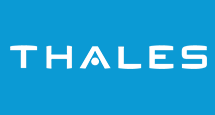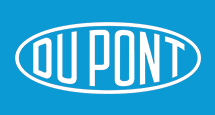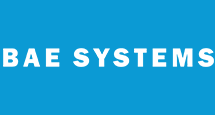Visiongain Publishes Deep Frozen Packaging Logistics Market Report 2022-2032
14 January 2022
Visiongain has launched a new report Deep Frozen Packaging Logistics Market Report 2022-2032: Forecasts by Type (Dry Shippers, Dry Ice Shipper), by Materials (Clinical Trials, Cell & Gene Therapies, Reagents, Cell Culture Media) AND Regional and Leading National Market Analysis PLUS Analysis of Leading Companies AND COVID-19 Recovery Scenarios.
Global Deep frozen packaging logistics Market Outlook
The global deep frozen packaging logistics market was valued at US$xx million in 2021. The region is expected to witness a CAGR of xx% from 2022 to 2027 and is expected to reach US$xx million in 2027 from its previous value of US$xx million in 2022. Visiongain further anticipates that the region will reach US$xx million in 2032 while growing at a CAGR of xx% from 2022 to 2032.
Deep frozen packaging logistics is a part of pharmaceutical cold chain logistics. It's massive, intricate, and a lot of the cargo is life-saving. The deep frozen package logistics business of cold chain logistics, which is estimated to be valued at roughly US$xx billion in 2021 according to Visiongain analysis.
The industry requires standardised handling techniques, specialised transport equipment, and a high level of regulatory compliance and it is still expanding. The desire for various types of medications to assist combat a growing number of chronic diseases & lifestyle-related ailments is fuelling the overall deep freeze packaging logistics market demand.
What are the Market Drivers?
Growing Pharmaceutical Business
Expectations for cures and treatments is anticipated rise as the number of common and not-so-common health conditions rises. And the pharmaceutical business is rising to the occasion by offering an ever-expanding range of drugs, many of which need temperature-controlled transit and adequate cold chain management.
High-temperature-sensitive pharmaceuticals may become useless and even harmful, while low-temperature-sensitive pharmaceuticals lose their therapeutic benefits when frozen. Failure to transport or keep pharmaceuticals within their specified temperature range may have serious consequences for people's health, and in certain cases, it can even be deadly.
To safeguard the effectiveness of their medications, pharmaceutical companies and manufacturers transport a large portion of their cargo refrigerated or frozen. Some pharmaceutical industries need temperatures below minus 15°C as it might be difficult to tell whether a product has thawed and then re-frozen by sight, certain goods may need to be tested in a laboratory before being used. Organs and tissues are frequently sent frozen. Reefer containers are often used by pharmaceutical businesses and industries that carry cold or frozen items by sea. The term "reefer" refers to a chilled container that functions similarly to an enlarged refrigerator.
Importance of Cold Chain Logistics to the Worldwide Pharmaceutical Sector
Pharmaceutical firms are concerned about temperature excursions because many of their medications need temperature-controlled storage and delivery to retain their effectiveness and other qualities. Deep frozen logistics accounted for approximately 7-10% of the pharmaceutical cold chain business in terms of value in 2020. This percentage is expected to rise. First, with the development of so many innovative medicines produced from human cells, there is a rising need for temperature-controlled goods. Temperature changes are quite difficult for these biologic materials to withstand. Additionally, temperature sensors, telematics, data loggers, & cloud computing solutions are all enabling track & trace and real-time remote temperature monitoring solutions, which are critical safety features in the pharmaceutical business.
What are the Market Challenges?
Challenge of Transporting Temperature-Sensitive Pharmaceuticals
It cannot be emphasised how critical it is to maintain temperature-sensitive medications within their specified limits during their transit (including storage at their ultimate destination). Pharmaceutical companies are aware of this since it is their obligation to ensure that a product's quality is maintained until it is used. High-temperature-sensitive pharmaceuticals may become useless and even harmful, while low-temperature-sensitive pharmaceuticals lose their therapeutic benefits when frozen. Failure to transport or keep pharmaceuticals within their specified temperature range may have serious consequences for people's health, and in certain cases, it can even be deadly. To safeguard the effectiveness of their medications, pharmaceutical companies and manufacturers transport a large portion of their cargo refrigerated or frozen.
Regulating a Highly Specialized Cold Supply Chain
Maintaining a safe & secure cold supply chain is critical in the pharmaceutical sector, which poses major logistical issues for major biologics companies across the globe. There has been a definite movement towards standardising worldwide transportation laws for healthcare-related items in recent years, mainly as a consequence of the massive growth in medications that are sensitive to temperature change.
The Food & Drug Administration in the U.S. determines guidelines for the manufacturing, storage, & distribution of pharmaceutical products in the current good manufacturing practices document. It involves all aspects of the supply chain, including transportation, packing & labelling, as well as employee training and record-keeping.
Similarly, the EU has released the Good Distribution Practices for Human Use of Medicinal Products (GDP). The goal of compliance is to preserve pharmaceutical items' quality and integrity. It includes elements such as quality management systems, staff, buildings and equipment, paperwork, and supplier and customer certification, much as its American counterpart.
Governments are not the only ones that impose restrictions but other authorities as well. In its thorough temperature control regulations, the International Air Transport Association (IATA) lays forth its criteria for shipping pharmaceutical items by air (TCR). All shipments scheduled as time and temperature sensitive cargo must also have a Time and Temperature Sensitive Label applied to them. The effect of regulating every step of the process, from manufacturing to dispensing, product degradation, & even counterfeit product infiltration, is encouraging logistics companies to specialise in shipping pharmaceutical products which in turn is projected to fuel deep frozen packaging logistics companies. These firms are well-versed in the regulatory and logistical requirements of distributing such items door-to-door, assisting producers in ensuring quality and effectiveness.
COVID-19 Impact on Deep Frozen Packaging Logistics Market
Lower prices have been a major factor in the movement of a considerable portion of production capabilities to China and India in the past decade or so, notably for APIs, oral solid dosage forms, and liquids. As a result, output quantities in these nations have increased significantly. According to FDA statistics released in 2019, about 40% of registered manufacturing sites for Active Pharmaceutical Ingredients were in India or China, which does not include suppliers of raw materials, fine chemicals, and other components needed for pharmaceutical manufacture.
The movement of critical manufacturing capabilities to Asian nations such as China, Taiwan, and India has had a direct influence on supply chain dependability, resulting in medicine shortages due to a variety of factors such as transportation distance and manpower availability.
Although the COVID-19 epidemic is still ongoing, routes have already reopened, and lockdowns in most nations are gradually being lifted, with global workforces anticipated to return to work by the end of the year.
The COVID-19 epidemic has given us a vital lesson about supply chain flaws and the urgent need to strengthen supply networks. COVID-19 did not have such a global influence prior to 2020, and if we look at the positives, large corporations have managed to keep things moving and ensuring patients' requirements are satisfied as an industry. However, whether it's another virus or a different situation that challenges our resilience, more robust systems are required to guarantee the pharmaceutical business continues to provide life-saving pharmaceuticals to patients.
Competitive Landscape
Prospects for established firms and those seeking to enter the market– including company profiles for 22 of the major companies involved in the deep frozen packaging logistics market. Some of the company’s profiled in this report include Almac Group, Amerisource Bergen, B.P.L. GmbH, Catalent, Ceva, DHL, FedEx, Glatt GmbH, Kuehne + Nagel, Marken (A UPS Company), SkyCell, Thermo Fisher Scientific Inc., United Parcel Services, WuliuAir, Biocair, CSafe Global, Peli BioThermal Limited, T°Safe Group, Dryce Srl, IMP LOGISTICS, Yourway, and va-Q-tec among other prominent players.
Investment in Pharmaceutical Business and Logistic Providers to Play Key Role on Deep Frozen Packaging Logistics Market Growth
The pace of innovation in the pharmaceutical sectors shows no signs of slowing down. Manufacturers continue to develop cutting-edge speciality medicines that serve patients all around the globe. A rising proportion of these novel medicines will be products that need deep freeze cold chain storage. Pharmaceutical firms must engage their logistics partners early in the planning process to develop an end-to-end logistics strategy that guarantees the product is delivered on time and in good condition throughout the world in order to promote global access to these novel speciality medications.
Pharmaceutical businesses and logistics providers who continue to invest in deep freeze packaging, storage facilities (especially in critical global markets), and tracking technology will be able to enable the dependable and safe transportation of these speciality products throughout the globe. CEVA Logistics, for example, established its temperature-controlled airfreight station close to Singapore's Changi International Airport on September 8, 2021, which is a key healthcare logistics centre for the Asia Pacific region. CEVA's newest cold station is located in Singapore's Airport Logistics Park's Free Trade Zone, and thus allows continuous regional distribution in the ASEAN territories, as well as in-transit storage, quick turnaround times & value-added services for connecting to global markets.
CEVA's healthcare centre in Singapore is part of the company's plan to invest in and open 40 pharma stations throughout the world, bolstering its temperature sensitive solution. CEVA will be able to service not just significant healthcare gateways in emerging economies in Asia Pacific, but also more than 1,450 healthcare trade lanes throughout the world.
DHL Opens New German Pharma Warehouse Facility, Projected to Boost Regional Growth
DHL Supply Chain, Deutsche Post DHL Group's contract logistics business, is developing a 32,000m2 logistics facility in Florstadt, Germany. According to DHL, the new facility would increase the multi-user site in Florstadt's capacity for pharmaceuticals and medical items to over 70,000m2 in total, serving markets all across Europe. There are now two logistics hubs on the site. According to the corporation, the facility will provide clients in the pharmaceutical and medical sectors with more temperature-controlled storage spaces.
QuickSTAT Has Constructed Conditioning Facility in Singapore for Storage of Pharmaceutical Products
QuickSTAT, a Kuehne+Nagel company, has constructed a control tower and conditioning facility in Singapore for the processing and storage of pharmaceutical products. QuickSTAT's experience ensures proper handling, packaging, and storage of time-and-temperature sensitive items, allowing for improved control of cell and gene therapies.
The organisation is dedicated to offering creative and customised logistics and transportation solutions to satisfy the ever-changing needs of the pharmaceutical, biotechnology, and life science industries in all parts of the globe. The company can offer local and worldwide assistance for K+N and QuickSTAT clients by continuing to grow its global network to crucial areas.
Discover sales predictions for the global deep frozen packaging logistics market and submarkets.
Along with revenue prediction for the overall world market, there are 2 segmentations of the deep frozen packaging logistics market, with forecasts for 2 Types and 3 Materials each forecasted at a global, regional, and country level, along with COVID-19 impact recovery pattern analysis for all segments.
Who are the major players analyzed in the market?
• Almac Group
• Amerisource Bergen
• Biocair
• B.P.L. GmbH
• Catalent
• Ceva
• DHL
• Dryce Srl
• FedEx
• Glatt GmbH
• IMP LOGISTICS
• Kuehne + Nagel
• Marken (A UPS Company)
• SkyCell
• Thermo Fisher Scientific Inc.
• United Parcel Services
• WuliuAir
• CSafe Global
• Peli BioThermal Limited
• T°Safe Group
• Yourway
• va-Q-tec
Notes for Editors
If you are interested in a more detailed overview of this report, please send an e-mail to contactus@visiongain.com or call +44 (0) 207 336 6100.
About Visiongain
Visiongain is one of the fastest-growing and most innovative independent media companies in Europe. Based in London, UK, Visiongain produces a host of business-to-business reports focusing on the automotive, aviation, chemicals, cyber, defence, energy, food & drink, materials, packaging, pharmaceutical and utilities sectors.
Visiongain publishes reports produced by analysts who are qualified experts in their field. Visiongain has firmly established itself as the first port of call for the business professional who needs independent, high-quality, original material to rely and depend on.
Recent News
Visiongain Publishes Cell Therapy Technologies Market Report 2024-2034
The cell therapy technologies market is estimated at US$7,041.3 million in 2024 and is projected to grow at a CAGR of 10.7% during the forecast period 2024-2034.
18 April 2024
Read
Visiongain Publishes Automation in Biopharma Industry Market Report 2024-2034
The global Automation in Biopharma Industry market is estimated at US$1,954.3 million in 2024 and is projected to grow at a CAGR of 7% during the forecast period 2024-2034.
17 April 2024
Read
Visiongain Publishes Anti-obesity Drugs Market Report 2024-2034
The global Anti-obesity Drugs market is estimated at US$11,540.2 million in 2024 and is expected to register a CAGR of 21.2% from 2024 to 2034.
12 April 2024
Read
Visiongain Publishes Inflammatory Bowel Diseases (IBD) Drugs Market Report 2024-2034
The global Inflammatory Bowel Diseases (IBD) Drugs market was valued at US$27.53 billion in 2023 and is projected to grow at a CAGR of 6.2% during the forecast period 2024-2034.
















